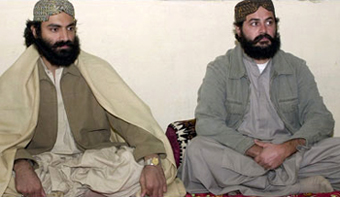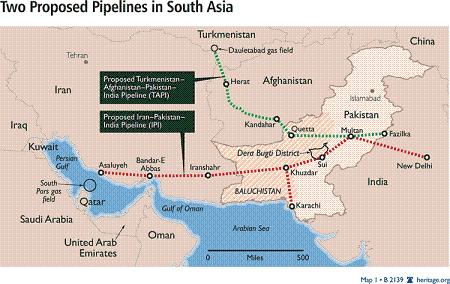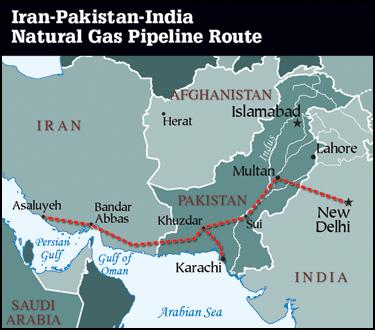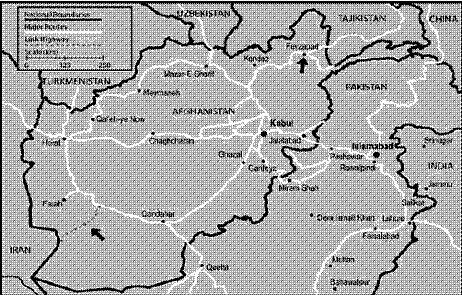
Excerpt: "The problem for US is that BLA alone is not able to break away Baluchistan from Pakistan. Of the 5% population of Baluchistan they don’t even have support of 10% Balochi population. The Pakistan Army and ISI are resisting the assault in national and strategic interests of Pakistan. The Great Game of Brzezinski will surely continue in Baluchistan and rest of Pakistan, the people of Pakistan are ready to counter this great game now we need leadership and some courage. It will take some time to achieve courage and leadership but it will come eventually. Street revolutions are easy to carry out the hard part is the mental revolution. That is what is required right now to challenge the US global hegemony."
Baluchistan is strategically located East of Iran and to the South of Afghanistan. It has a port at Gwadar that was built by China. Gwadar lies at the opening of Strait of Hormuz. Baluchistan has huge quantities of natural gas, and unexplored oil reserves. More importantly US wants to control the port of Gwadar, and eventually start their dream oil pipeline from Central Asia, through Afghanistan into Baluchistan and Gwadar. Baluchistan is the largest province of Pakistan in terms of area and it covers almost 48% of Pakistan’s area. But its population accounts for only 5% of the total population of Pakistan. Ethnically Baluchistan is divided into Balochs, and Pathans, followed by other small minorities. The state capital is Quetta, (recently termed as nerve center of Taliban by US Generals).
Like all histories in South Asia, or Middle East, the history of Baluchistan is long, complex, and would require a long article to cover all the details. So a brief synopsis is sufficient to get us rolling before we come to the point.
Baluchistan like, Afghanistan and Tribal Areas of Pakistan is a tribal society. Many different Sardars (tribal chiefs), rule their respective tribes, often with serious disregard for human rights. Development wise, Baluchistan is the most backward province in Pakistan. There may be some weight in the argument that the federal government in Pakistan has neglected the development of Baluchistan, but equal responsibility lies with the Sardars of Baluchistan who enjoy immense power in their tribes. They are unwilling to come into the main stream society, have monopoly over the laws and regulations of the state, while they themselves sit in provincial and national parliaments, yet they don’t work for the development of their own people.
Baluchistan has the worst human rights record out of all the provinces of Pakistan. Every time horrific human rights atrocities are committed in Baluchistan tribal chiefs defend the abuses by claiming them to be part of their tribal cultural norms. Since the independence of Pakistan, most of the tribes have accepted Pakistan as their homeland and have tried to come into the mainstream Pakistani society. But Bugti and Marri tribal leaders have always been a source of trouble for Pakistan. Currently Brahamdagh Bugti (grandson of former Bugti tribe leader and former chief minister of Baluchistan, Nawab Akbar Bugti5 is the leader of a runaway terrorist group, the Baloch Liberation Army (BLA)4 operating out of Kandhar, Afghanistan. Before Brahamdagh, Balach Marri, son of Nawab Khair Baksh Marri, was leader of BLA, and he was killed in Afghanistan in 2007.
Covert Operations against Pakistan
A new dirty game of geo-politics has already started in Baluchistan, Pakistan. To understand the recent wave of violence in Baluchistan we must understand the vested interests in Baluchistan. The root cause of violence in Baluchistan is not internal poverty or lack of development but the covert operations of foreign intelligence agencies. Internal issues might act as catalysts to inflame the situation but the root cause is foreign interference in internal affairs of Baluchistan. The main group responsible for violence in Baluchistan is the BLA4. Chief of the BLA Brahamdagh Bugti, in his recent interview with Pakistani news channel AAJ TVm declared that he will attack and kill non Baloch population of Baluchistan. In other words he threatened killing of innocent Pakistani civilians on ethnic lines. This is just taking words out of Col Ralph Peter’s plan for balkanization of Pakistan, along the lines of Yugoslavia (June 2006 issue of The Armed Forces Journal). Bugti also asked for support of India and other powers to help him break away Pakistan’s Baluchistan. (For related news read two of my older articles on Axis of Logic, Playing with Fire in Pakistan, - and Now or Never. Pakistan must change its policy in war on terror).
According to Global Research scholar, Michel Chossudovsky:
“In the current geopolitical context, the separatist movement is in the process of being hijacked by foreign powers. British intelligence is allegedly providing covert support to Baluchistan separatists (which from the outset have been repressed by Pakistan’s military). In June 2006, Pakistan’s Senate Committee on Defense accused British intelligence of "abetting the insurgency in the province bordering Iran" [Baluchistan]..(Press Trust of India, 9 August 2006). Ten British MPs were involved in a closed door session of the Senate Committee on Defense regarding the alleged support of Britain’s Secret Service to Baloch separatists (Ibid). Also of relevance are reports of CIA and Mossad support to Baloch rebels in Iran and Southern Afghanistan."
In a 2006 research article on Baluchistan which was published in Pak Tribune in 2006, Farzana Shah, a current affairs analyst for BrassTacks, a think tank based in Islamabad, highlighted the role which is being played by a British think tank against Baluchistan. Shah writes,
“In this regard the Foreign Policy Centre (FPC) United Kingdom arranged a seminar on Baluchistan province of Pakistan in collaboration with the so-called Baluchistan Rights Movement on 27th June 2006 in the House of Commons, London. It was highly disappointing as it was abashedly a one-sided cheap propaganda rather than discussing the real situation. By a mere look at the panel of the participants of the seminar one could easily figure out that it consisted of only anti-Pakistan elements and some self-styled activists advocating terrorism in the province. There were no representatives from government of Pakistan or even from the elected provincial government of Baluchistan in the seminar. It is just unfortunate that the Foreign Policy Centre which is expected to present fair suggestions to the British government to engage a country of their concern for important issues, indulged in such a blatant one-sided propaganda against Pakistan through the said seminar.”
Shah also points out in the article how a Government of Baluchistan is setup in exile in Jerusalem, Israel. She gives the details in her article.

Two Indian assets: Brahamdagh Bugti & Balach Marri (R). Marri died in an ambush in 2007 while crossing from Afghanistan to Pakistan after meeting his sponsors there.
The question is, what is the role of US, Afghanistan, India, and Iran in Baluchistan quagmire and what is at stake for these countries?
Afghanistan
Afghanistan was the only country that did not welcome Pakistan in 1947 at the time of our independence. The only time when there was no trouble inside Pakistan from Afghanistan was during the time of Taliban rule in Afghanistan. Taliban being Pukhtoon cleaned Afghanistan of Indian and Iranian assets (both India and Iran supports Northern Alliance, which is in government right now in Afghanistan). Afghanistan’s soil has been used again and again to cause trouble inside Pakistan. Currently BLA is operating from Kandahar, Afghanistan. BLA enjoys support from Indian RAW in terms of finances, logistics, and weapons. Recent report of Foreign Affairs, by Christine Fair of RAND Corporation gives us the inside.
“Having visited the Indian mission in Zahedan, Iran, I can assure you they are not issuing visas as the main activity! Moreover, India has run operations from its mission in Mazar, Afghanistan (through which it supported the Northern Alliance) and is likely doing so from the other consulates it has reopened in Jalalabad and Qandahar along the border. Indian officials have told me privately that they are pumping money into Baluchistan. Kabul has encouraged India to engage in provocative activities such as using the Border Roads Organization to build sensitive parts of the Ring Road and use the Indo-Tibetan police force for security. It is also building schools on a sensitive part of the border in Kunar–across from Bajaur (Pakistan’s Tribal Area where Pakistan Army had to carry out a major operation to eliminate TTP6 militants).
"Kabul’s motivations for encouraging these activities are as obvious as India’s interest in engaging in them. Even if by some act of miraculous diplomacy the territorial issues were to be resolved, Pakistan would remain an insecure state. Given the realities of the subcontinent (e.g., India’s rise and its more effective foreign relations with all of Pakistan’s near and far neighbors), these fears are bound to grow, not lessen. This suggests that without some means of compelling Pakistan to abandon its reliance upon militancy, it will become ever more interested in using it — and the militants will likely continue to proliferate beyond Pakistan’s control.”
Iran
Iran historically has enjoyed good relations with its neighbors including Pakistan during the time of Shah of Iran, but since then their relationship with Pakistan and Arab world has deteriorated. Strategically, Iran would like to maintain balance of power tipped in its favor in the region, this means the Pakistan’s strategic interests should be undermined, as they are at the moment. Taliban, Iran’s nemesis in Afghanistan is no longer in power, India, Iran’s ally and Pakistan’s arch enemy is enjoying a strong foothold in Afghanistan at the moment. Iran is also afraid of Jandullah’s covert operations against Iran, from Baluchistan. According to an April 2007 report by Brian Rossand and Christopher Isham of ABC News, the United States governmenthad been secretly encouraging and advising the Jandullah in its attacks.
Jandullah is a terrorist group that was created by CIA, and is responsible for terrorist activities inside Iran. Iran has spent a lot of money developing its Chabahar port, which is just 100 miles from Gwadar port of Pakistan. Gwadar port was built by China. Iran does not want Gwadar to become prominent and Chabahar to be sidelined, especially since Iran is isolated in the world at the moment. Iran has huge reserves of gas and it would like India to gain access to these reserves since India is its ally and Iran-India friendship will grow if India can gain access to Iranian gas reserves. Iran would also like trade with India to increase in future.

TAPI: Turkmenistan, Afghanistan, Pakistan, India

IPI: Iran, Pakistan, India
India
India is Pakistan arch enemy, first of all India has never accepted Pakistan as an independent sovereign nation. India was directly responsible for breakup of East Pakistan and formation of Bangladesh. India and Pakistan have fought three wars with each other. India is at the moment chief regional ally of US, and NATO. India believes that Pakistan is at the brink of break up and India must focus on building its relationship with Central Asia, Iran, and Afghanistan, and capture oil and gas reserves from Central Asia and Iran, through Afghanistan and Pakistan. India also believes that an independent Baluchistan will likely become a proxy of Iran, India and Afghanistan. Capt (r) Bharat Verma of Indian Defense Review, writes,
“That New Delhi is its own enemy became obvious, when it permitted the creation of a pure Islamic State on its borders. This nation-state contradicts every democratic and multi-cultural value dear to India. Therefore, if New Delhi has not slept a wink since the creation of Pakistan, it has no one except itself to blame! Many conveniently propose the myth that a stable Pakistan is in India’s interest. This is a false proposition. The truth is that Pakistan is bad news for the Indian Union since 1947-stable or otherwise. With Pakistan on the brink of collapse due to massive internal as well as international contradictions, it is matter of time before it ceases to exist. Multiple benefits will accrue to the Union of India on such demise.”
Verma Continues …
“If ever the national interests are defined with clarity and prioritized, the foremost threat to the Union (and for centuries before) materialized on the western periphery, continuously. To defend this key threat to the Union, New Delhi should extend its influence through export of both, soft and hard power towards Central Asia from where invasions have been mounted over centuries. Cessation of Pakistan as a state facilitates furtherance of this pivotal national objective.
“The self-destructive path that Islamabad chose will either splinter the state into many parts or it will wither away-a case of natural progression to its logical conclusion. In either case Baluchistan will achieve independence. For New Delhi this opens a window of opportunity to ensure that the Gwadar port does not fall into the hands of the Chinese. In this, there is synergy between the political objectives of the Americans and the Indians. Our existing goodwill in Baluchistan requires intelligent leveraging.”
India does not have natural gas reserves, and it desperately needs gas from Iran. But US is against Iran-Pakistan-India (IPI) pipeline. If IPI project comes through than the stability and security of Iran, Pakistan and India will be in the interest of these respective countries. US would not like this, since it takes away an important leverage from a superpower, that of playing one nation against another. US have proposed the idea of Independent Baluchistan, which India does not mind at all. India has gained strong foot hold inside Afghanistan. A road link connects Iranian port of Chabahar to Afghanistan. India has built a ring-road inside Afghanistan linking Iran to Afghanistan. With back channel diplomacy going on between Iran and US, India and Iran both would like NATO and US supplies to go through Chabahar, Iran rather than Karachi, Pakistan. India strongly believes that Independent Baluchistan is inevitable and is casting all its bets on this deal.

Road link from Iran into Afghanistan
(see checkered line, lower left arrow)
Washington’s interest in Baluchistan
| "It is imperative the Baluchistan, an energy rich province must not come under control of China." |
According to a study titled “Baloch Nationalism and the energy politics of energy resources: the changing context of separatism in Pakistan”, by Robert G.Wirsing, of Strategic Studies Institute, a think tank of U.S army, it is imperative the Baluchistan, an energy rich province must not come under control of China. China built Gwadar port, and would like to expand more trade and energy routes through Pakistan via Baluchistan.
To begin with China is interested in a gas pipeline from Iran through Pakistan’s into Western China. This is something that is not acceptable to US. China could station some of its naval ships at Gwadar in future should the need arise to provide security to its cargo; this is again something that is not acceptable to US. On the list of US agenda is to secure the Indian Ocean and its strategic routes, and Gwadar right at the mouth of Strait of Hormuz is one of those routes. As mentioned before US is using Baluchistan as a base to carry out covert operations against Iran using Jandullah. After 9/11 US is also using an airfield of Pakistan Air force in Baluchistan for its operations in war on terror.
The U.S. is looking into taking direct control of Gwadar, possibly by capturing Gwadar port, so that they can make a land route through Baluchistan into Southern Afghanistan, this will give them an alternate supply route for their troops. Baluchistan must be under US control so that gas pipelines from Central Asia can pump gas through Afghanistan into coast of Baluchistan. The US believes that Balkanization of Pakistan and setup of independent Baluchistan will dismantle the hope of resurgent Pakistan in the near future, paving the way for a dominant Iran taking control of Middle East while India will be able to take control of South Asia including Afghanistan. Brzezinski believes that Iran not Arab world is the natural ally of US in the Middle East. The current US government is using the foreign policy ideals of Brzezinski, which calls for using Islamic militant and Iran against China and Russia.
Conclusion
Current Pakistani government is not able to safeguard Pakistan’s national interests. When Zardari3became president he authorized release of many BLA terrorist who were held up by security forces in detention. BLA has gotten ample time to regroup and re-arm during the last few months. It is very interesting that the current Chief Minister of Baluchistan, Nawab Aslam Raisani before becoming CM, said in an interview, "We will not go for any type of compromise," says Nawab Raisani. "We want total autonomy."
According to author of bestselling book, ‘The Way of the World’, Ron Suskind, Raisani is on the payroll of top western intelligence agencies. Given the level of US penetration in Pakistan’s domestic politics it is no surprise.
The solution of Baluchistan lies with a strong government in Islamabad that is a nationalist government and not a puppet of IMF/WB/CIA. There should be no doubt in anyone’s mind that BLA does not represent the aggrieved Baloch people. BLA is a terrorist outfit and it must be dealt with accordingly. We need to get rid of this government that is working nothing like a democracy. Key decisions are taken by either Zardari or his important Washington approved advisors. We need a new setup of nationalist that are willing to stand up to US and make independent policy decision in the best interest of Pakistan. To counter the growing influence of India, Iran and US in Baluchistan it is a must that old contracts with China be renewed and new development projects must be initiated with Chinese help. The local population of Baluchistan must be given more shares in jobs and resources. This is only achievable if we have patriots in the provincial government of Baluchistan, not scoundrels who are abusing patriotism for their personal greed.
The problem for US is that BLA alone is not able to break away Baluchistan from Pakistan. Of the 5% population of Baluchistan they don’t even have support of 10% Balochi population. The Pakistan Army and ISI are resisting the assault in national and strategic interests of Pakistan. The Great Game of Brzezinski will surely continue in Baluchistan and rest of Pakistan, the people of Pakistan are ready to counter this great game now we need leadership and some courage. It will take some time to achieve courage and leadership but it will come eventually. Street revolutions are easy to carry out the hard part is the mental revolution. That is what is required right now to challenge the US global hegemony.
Glossary of Terms and people mentioned
1. Pervaiz Musharraf is former dictator-turned- president of Pakistan. He was forced out of office due to the assassination of Benazir Bhutto and his loss of support by his former sponsor, the U.S. government.
2. The Pakistan People’s Party (PPP) is the ruling political party under President Zardari.
3. Asif Ali Zardari is the current president of Pakistan. He is the former husband of Benazir Bhutto and came into power on her coat tails after she was assassinated. He is also the son of veteran politician Mr. Hakim Ali Zardari. Mr. Zardari is commonly known in Pakistan as "Mr. Ten Percent" due to his well-known cuts on various government deals.
4. BLA is Baloch Liberation Army, officially declared a terrorist outfit by Pakistan, US and UK. Is responsible for various terrorist activities in Pakistan that includes killing civilians, security forces, and blowing up natural gas pipelines.
5. Nawab Akbar Bugti was former head of the Bugti tribe of balochistan, also 13th governor of Baluchistan and the 5th Chief Minister of the province. He and his family favored creation of Pakistan. Bugti was killed on Aug 26th 2006 in a military operation when he was surrounded in a remote hill in Baluchistan.
6. Tehrik-e-Taliban Pakistan (TTP) is the main anti-government party in Pakistan at the moment. Because the TTP bears the name "Taliban" the western media often confuses them with the Taliban in Afghanistan. This is a grave mistake. The Afgan Taliban rejects the TTP. The TTP views the ANP to be pro-US and part of the pro-US Pakistan government. The TTP is a group based on Takfiri ideology (a Muslim who believes that all other Muslims, even orthodox Muslims are not true Muslims. They view all others as collaborators with the West. All Muslim scholars are unanimous in declaring Takfiris ‘heretics of Islam
Maps taken from Strategic Studies Institute Report on Baluchistan.



















